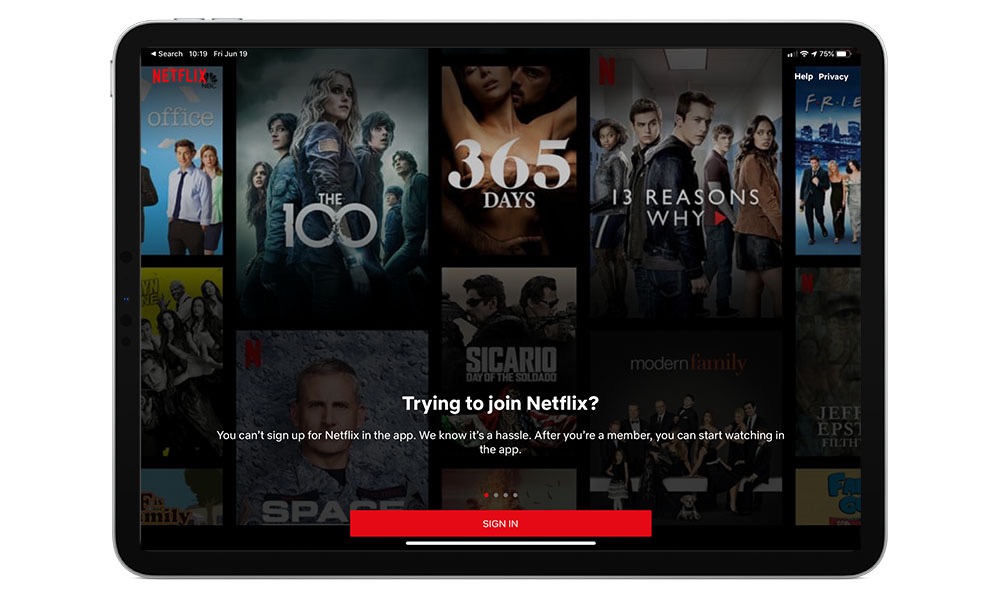Netflix Is Cutting Its Last Ties with App Store Billing
 Credit: Jesse Hollington / iDrop News
Credit: Jesse Hollington / iDrop News
Toggle Dark Mode
Netflix is taking a page from Spotify’s book in severing the last of its financial ties with the App Store, forcing legacy subscribers to pay up directly if they want to continue accessing the service.
Although Netflix hasn’t offered in-app subscriptions since 2018, customers who signed up for the service before that and have remained paying members for all these years have been permitted to continue their billing through Apple. Until now, that is.
According to The Streamable (via 9to5Mac), Netflix has begun sending emails to subscribers who are still paying this way, advising them that they’ll need to update their payment method to go directly through Netflix or risk having their accounts cancelled.
Netflix has made a similar update to its help page on billing through Apple:
Netflix billing through Apple is no longer available for new or rejoining members. Some Apple-billed members in select countries may be prompted to add a new payment method to continue their subscription.
It also notes that “Netflix Gift Cards cannot be used to restart these accounts.”
Spotify made a similar move last summer, although the music streamer’s move not only affected fewer customers — in-app subscriptions were only available from 2014 to 2016 — but it also may have been doing some of them a favor, as customers using Apple billing were actually paying more than Spotify’s normal rates.
While they’re far from alone, Netflix and Spotify are two of the most well-known holdouts on the App Store when it comes to Apple’s in-app purchasing system. Apple charges a 15-30% commission on all in-app subscriptions, and since the two streaming giants are unwilling to give Apple a cut of their revenue or adjust their prices, they’ve opted to rely on direct subscriptions on the web.
Unlike Netflix, when Spotify did allow in-app subscriptions, it decided to pass the “Apple tax” on to its customers. Spotify subscriptions made through the company’s iPhone app were priced 30% higher — at $12.99 instead of $9.99. Spotify closed off its in-app purchases in 2016, but it didn’t force customers to stop paying that way, and anybody who didn’t switch would have kept on paying $3/month more than they had to.
That works out to more than $250 for anybody who stayed subscribed that way for seven years, but that was money in Apple’s pocket, not Spotify’s, so it wasn’t to Spotify’s advantage to leave things that way.
While Spotify could have continued that business model, it chose not to, likely because the higher price didn’t help attract customers. This has also been Spotify’s chief antitrust complaint against Apple for years; being forced to charge $12.99 next to Apple Music’s $9.99 left Apple with an unfair advantage.
Nevertheless, other companies continue to pass the cost of the App Store on to their customers by charging higher prices. Perhaps the best known among these is Google, which still offers YouTube Premium subscriptions through the YouTube app — and charges about 30% more for those who subscribe that way.
On the other hand, Netflix chose to eat Apple’s commissions rather than charging its customers a higher price through its iPhone and iPad app. Hence, while this may feel like a hostile move against Apple on the streaming giant’s part, it’s likely just a business decision; it’s been losing money on those subscriptions for the past five years. It’s unclear how many customers are still on that legacy billing, but the company has apparently decided it’s time to force people to make a switch and stop sharing its profits with Apple.






